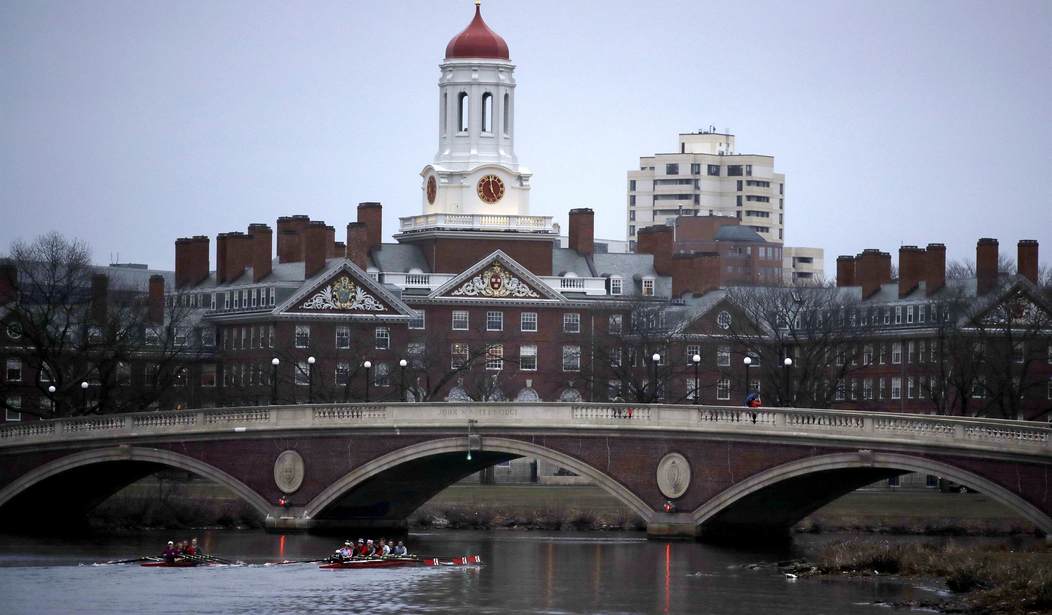Lockdowns and stay-at-home orders spurred by the Wuhan coronavirus have caused myriad problems for citizens, businesses, healthcare professionals, and educators, among many others, but the $2.2 trillion CARES Act is proving to be far from a perfect solution.
Emergency funding from the US government is finally making its way to intended recipients but concerns about how that money is being used to help Americans have been swirling, particularly as the allocated money runs dry. Higher education received $14 billion in economic stimulus, 50 percent of which was distributed immediately as grant money for students needing assistance with expenses outside of tuition such as technology and childcare. Education Secretary Betsy DeVos described the rush payment in grant money as a way to cover "unmet financial needs" caused by the COVID-19 outbreak.
"What's best for students is at the center of every decision we make," DeVos said. "That's why we prioritized getting funding out the door quickly to college students who need it most. We don't want unmet financial needs due to the coronavirus to derail their learning." The American Council on Education described the breakdown of grant money as being based on full-time Pell Grant recipients.
The Coronavirus Aid, Relief, and Economic Security (CARES) Act signed into law March 28, 2020, provides almost $14 billion that will go directly to higher education institutions to support the costs of shifting classes online, and for grants to students for food, housing, technology, and other purposes.
The Department of Education will allocate these funds to institutions using its student financial aid distribution system. The formula it will use allocates 75 percent of the funds available (about $9.4 billion) based on the full-time equivalent enrollment of Pell Grant recipients. The remaining 25 percent (about $3.2 billion) is based on the full-time equivalent enrollment of students who did not receive a Pell Grant. Importantly, the formula excludes students who were enrolled exclusively in online coursework prior to the pandemic.
But the funding for universities leaves out any directive to refund tuition or housing to indebted and financially strained college students who are now missing out on their costly educations. Yes, grants are useful for struggling students who may have lost work, particularly those still dependent on their parents – student dependents did not qualify for the $1200 stimulus payment, regardless of employment status. A six-month suspension of federal loan payments and zero percent interest over that same time period also offers relief, though that debt will still be owed after the pandemic is over.
The $6 billion in student grant money provided through the CARES Act is also based on the economic status of students who received Pell Grants, a federal collegiate grant given to those with the greatest financial need. This effectively excludes students who did not receive the grant from receiving any financial reprieve from education loss caused by the pandemic.
Recommended
Some students stuck with the full college bill and no relief have turned to legal action. A variety of lawsuits have been filed by students seeking financial restitution and reimbursement for college educations they are no longer receiving and housing they are not permitted to live in. Students from Drexel University in Pennsylvania and the University of Miami in Florida have filed class-action lawsuits claiming that the higher learning they paid for is not equal to the online classes they are now relegated to. Other individual legal complaints are simply asking for a refund for money to live in a now off-limits dorm room.
Harvard University, a private for-profit college in the prestigious Ivy League, costs students an average of over $70,000 per academic year if they do not receive any grants or scholarships. Now relegated to sporadic online learning and without access to the school's coveted on-campus resources, students are still expected to shoulder the financial burden of their chosen institution. Harvard, which also has a $40 billion endowment, received $9 million from the CARES Act. New York Ivy League schools Columbia University and Cornell University received nearly $13 million each from the stimulus package.
Though there is some cost to the universities in order to transfer the majority of their education to an online platform, the removal of students from college campuses also offered some cost-saving measures which colleges could use to refund displaced students. Several students recently described their disappointment with the current university cost to quality ratio to the Wall Street Journal.
"Remote learning lets universities fulfill their basic obligations to students. They're still providing the best instruction possible given the circumstances, and therefore don't owe students a refund for tuition," one student at Williams College in Massachusetts said. "But make no mistake—students are not getting what we paid for." Another post-graduate student in Chicago lamented the large university endowments he expected to contribute towards in his future.
"As an M.B.A. candidate, I'm in school primarily for the social experience and network. I didn't leave the workforce and pay full price for online classes, which are typically a fraction of the price of full-time programs for a reason," Kunal Pasrija of Northwestern University said. "If universities won't use their multibillion-dollar endowments to help students in a time of crisis, why should those students ever donate to them?"

























